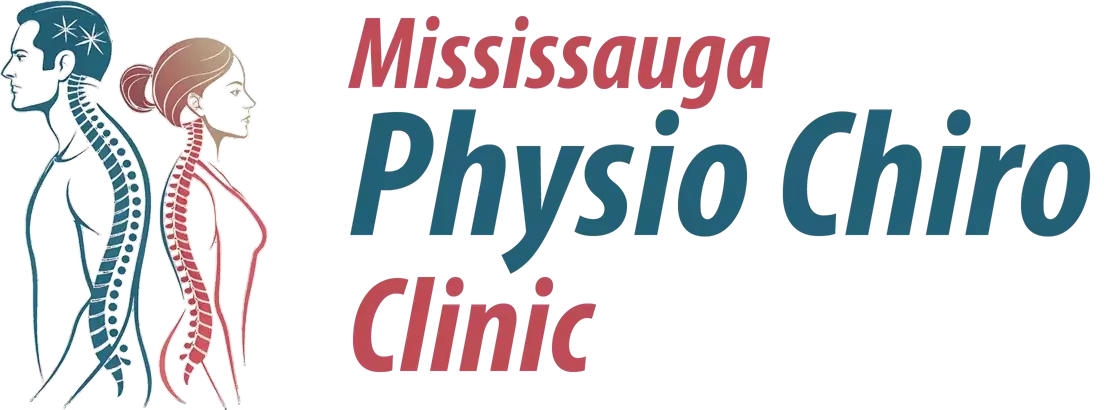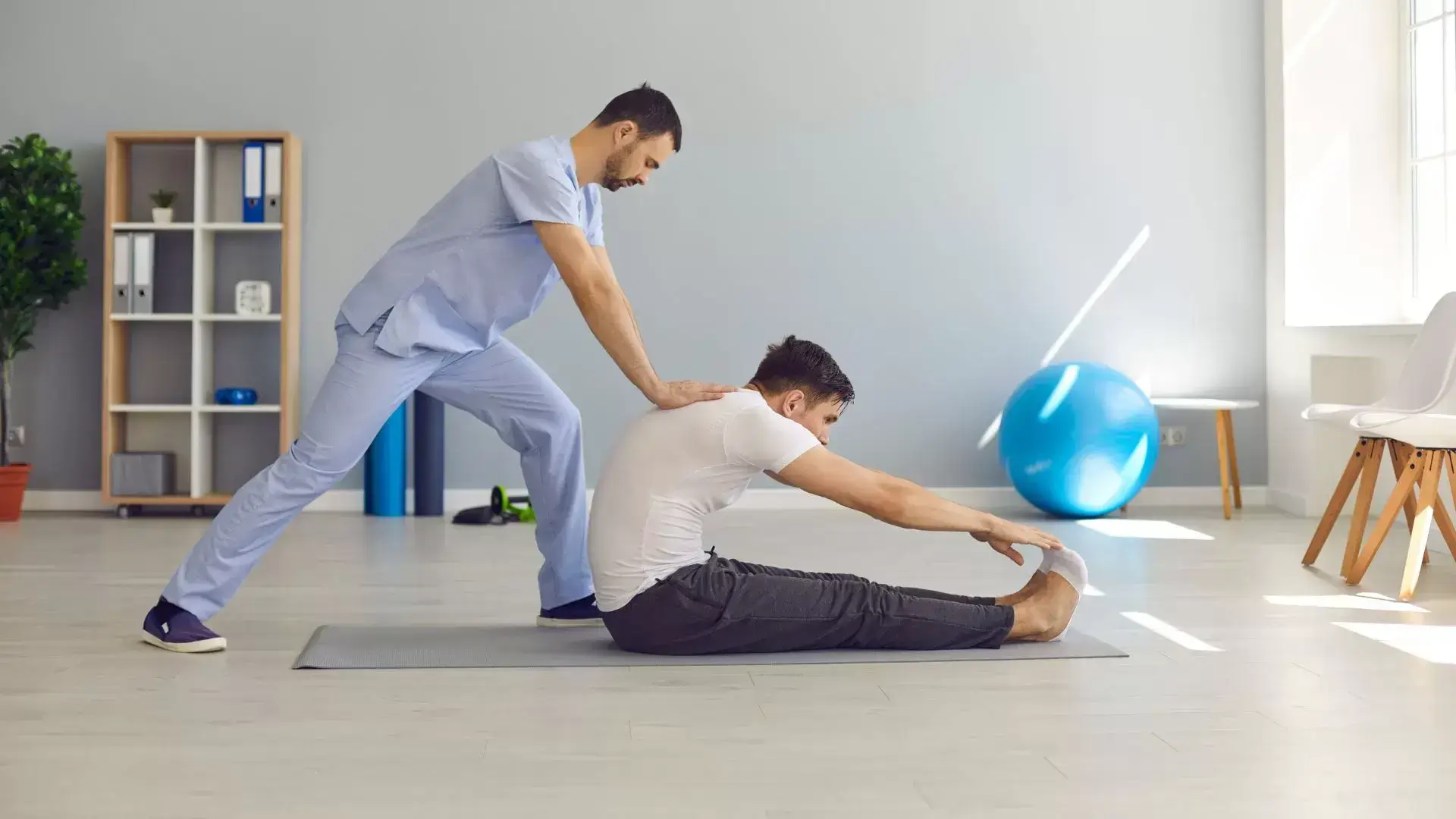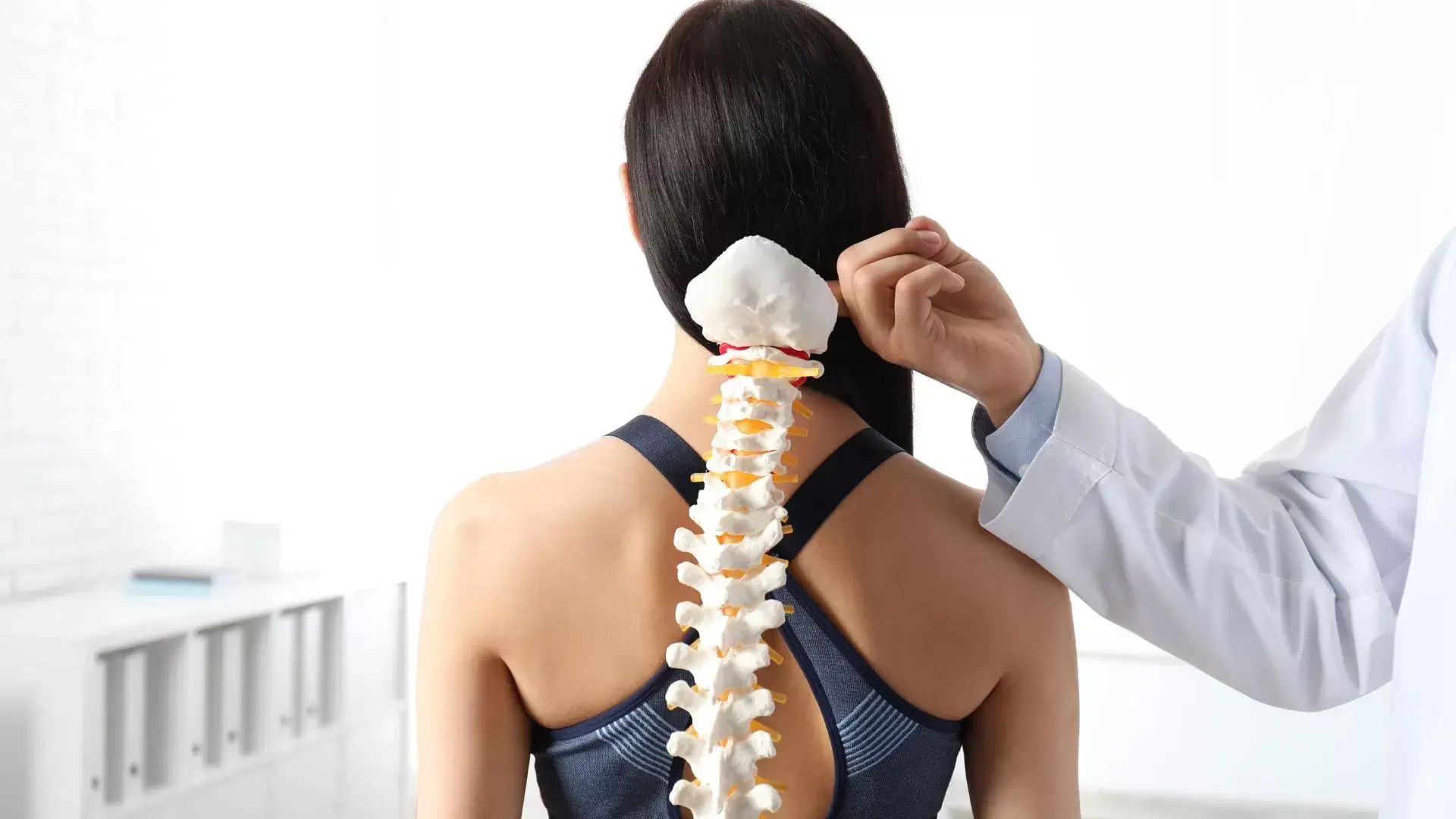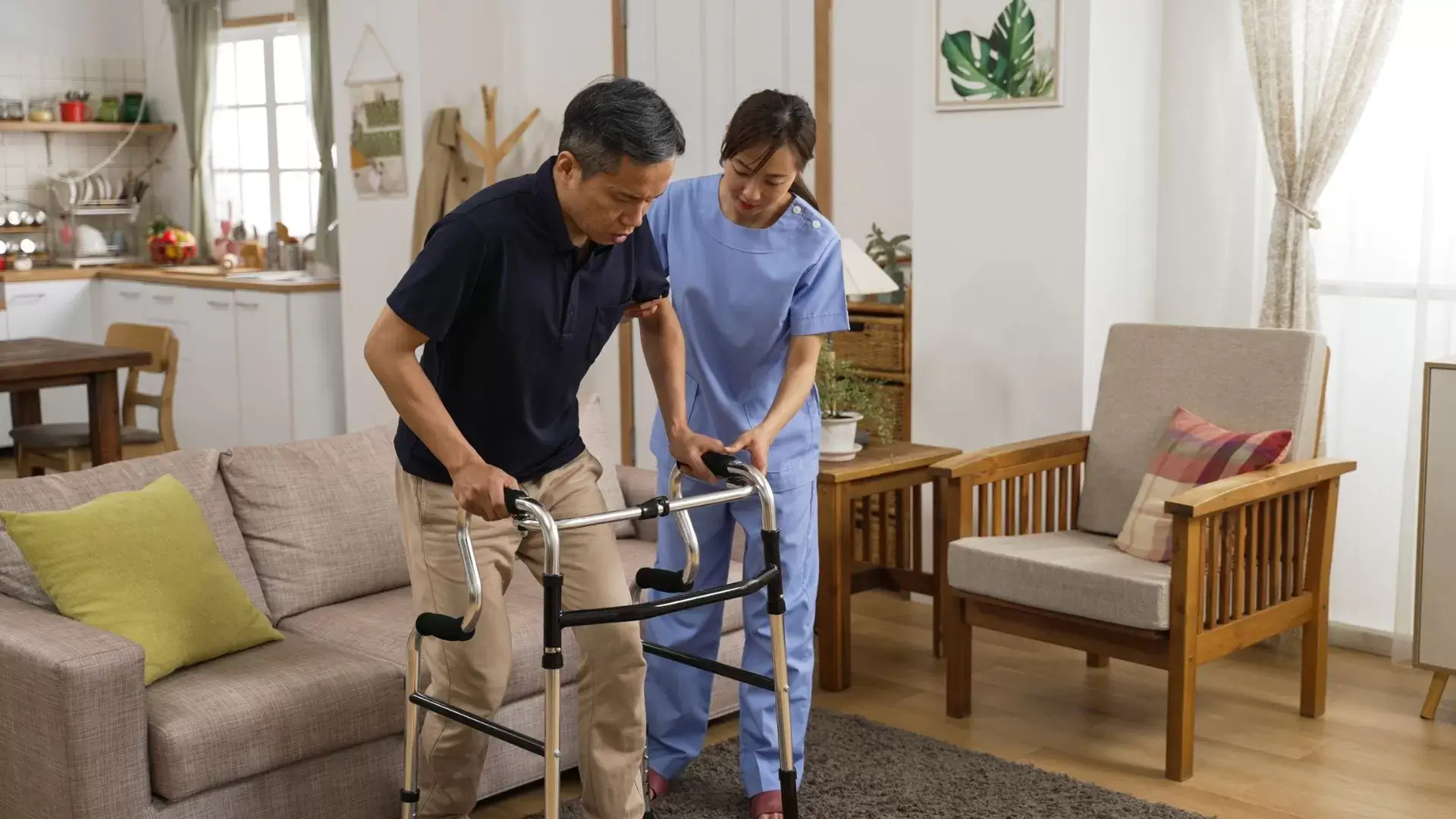Physiotherapy for Wrist Injury in Mississauga In Mississauga, we recognize that wrist injuries can notably impact daily activities and overall quality of life. Through targeted physiotherapy, we can help individuals recover effectively from both sports-related and chronic conditions. Our approach includes personalized treatment plans, mobility exercises, and ergonomic assessments tailored to each patient’s specific needs. As we explore the various techniques and strategies available, we invite you to reflect on how these therapies can not only alleviate pain but also prevent future injuries, ensuring a healthier lifestyle moving forward. What insights might we uncover together about your path to recovery? About Our Physiotherapy and Chiropractic Services At Mississauga Physio Chiro Clinic, we offer an extensive range of physiotherapy and chiropractic services designed to support your recovery and enhance your overall well-being. We recognize that wrist injuries can greatly impact your daily life, whether they stem from sports-related activities or chronic conditions. Our dedicated team of Physiotherapist and Chiropractors in Mississauga is here to provide tailored treatment plans that focus on wrist rehabilitation. We utilize a combination of wrist mobility exercises and wrist strengthening exercises to help alleviate wrist pain and promote healing. Our goal is to guarantee you regain full function and strength in your wrist, allowing you to return to your daily activities with confidence. For those struggling with chronic wrist pain, we emphasize a compassionate approach to help you find effective wrist pain relief. Our wrist physical therapy sessions are structured to address your unique needs, guaranteeing personalized care throughout your recovery journey. Whether you’re dealing with a recent wrist injury or ongoing discomfort, we’re committed to guiding you every step of the way. With our physiotherapy and chiropractic services, we aim to empower you to take control of your health and improve your quality of life. Understanding Physiotherapy for Wrist Injuries Understanding physiotherapy for wrist injuries is vital for anyone seeking effective recovery methods and long-term relief from pain and dysfunction. We focus on a thorough approach to address wrist pain diagnosis, ensuring that every aspect of your injury is evaluated. Physiotherapy for wrist injury often involves targeted treatments that alleviate wrist inflammation and swelling, allowing us to enhance your wrist range of motion. To tackle wrist mobility issues, we incorporate a variety of wrist strength exercises tailored to your needs. These exercises not only promote healing but also prevent future injuries by improving overall wrist stability. For those struggling with conditions like wrist tendonitis, our rehabilitation strategies prioritize gradual progression, ensuring safe recovery. An important aspect of our approach is ergonomic wrist positioning, which plays a key role in daily activities and can greatly reduce strain. Throughout your journey, we’re committed to providing compassionate care and support, guiding you through each step of your wrist rehabilitation. Together, we’ll work towards restoring function and alleviating pain, empowering you to return to your daily activities with confidence. Key Causes of Wrist Injuries and Their Impact Recognizing the key causes of wrist injuries is important for us to develop an effective rehabilitation plan and prevent future complications. One common cause is a wrist sprain, which occurs when ligaments are overstretched or torn. Similarly, a wrist strain involves injury to the muscles or tendons in the area. Both injuries can stem from accidents or improper movements during sports and daily activities. Wrist fractures often result from trauma, such as falls, leading to significant wrist pain and stiffness. In many cases, repetitive strain injuries and overuse injuries develop from performing the same motion repeatedly, causing wrist joint pain and weakness over time. Understanding these causes helps us tailor our physiotherapy treatments to address specific issues effectively. For instance, if we identify wrist trauma as a primary factor, we can focus on restoring mobility and strength while incorporating wrist pain prevention strategies. By being proactive and educating ourselves about the causes of wrist injuries, we can mitigate risks and promote healthier wrist function. Ultimately, our goal is to guarantee that we recover fully and prevent future issues that could impact our daily lives. Recognizing the Signs and Symptoms of Wrist Injuries How can we identify the signs and symptoms of wrist injuries to confirm timely and effective treatment? Recognizing these signs is vital for our recovery. Common indicators include pain and swelling, which may suggest a sprained wrist or a fractured wrist. We should also be aware of wrist bruising, as it often accompanies these injuries. If we experience wrist numbness or tingling, it could indicate nerve involvement, and we must seek medical attention promptly. Additionally, reduced wrist flexibility or difficulty in performing everyday tasks may point to wrist dysfunction, often seen in conditions like wrist overuse syndrome. In cases where symptoms persist, a healthcare professional might recommend imaging techniques such as a wrist x-ray or wrist MRI to assess the extent of the injury. By staying vigilant about these signs, we can guarantee that we address wrist injuries effectively and avoid long-term complications. Remember, early intervention is key, so if we notice any of these symptoms, it’s important to consult a physiotherapist or healthcare provider for an accurate diagnosis and tailored treatment plan. How Wrist Injuries Are Diagnosed: Assessments and Imaging After identifying the signs and symptoms of wrist injuries, the next step involves detailed assessments and imaging techniques to accurately diagnose the condition. We usually begin with a physical examination to evaluate pain levels, range of motion, and any signs of swelling. If acute wrist pain is present, we may suspect a wrist ligament tear, cartilage damage, or even a dislocation. To further investigate, we often recommend imaging tests such as a wrist ultrasound or MRI. These imaging techniques allow us to visualize soft tissue structures, helping us identify any ligament tears, cartilage damage, or signs of wrist nerve entrapment, like median nerve compression. In certain cases, if conservative treatments fail, wrist surgery may be necessary to repair any significant injuries. Understanding the specific type of wrist injury is essential in guiding us towards appropriate wrist instability treatment. By
Physiotherapy for Tailbone Injury
Physiotherapy for Tailbone Injury in Mississauga When it comes to managing a tailbone injury, we recognize the multifaceted challenges patients face in Mississauga. Our approach to physiotherapy focuses on tailored rehabilitation, addressing both physical and emotional aspects of recovery. Through extensive assessments and specialized treatment plans, we aim to alleviate pain and enhance mobility. However, grasping the specific causes and symptoms of coccyx-related issues is essential for effective treatment. What insights can we gather about the underlying factors that contribute to tailbone pain and how they can shape our recovery strategies? About Our Physiotherapy and Chiropractic Services At Mississauga Physio Chiro Clinic, we specialize in providing tailored physiotherapy and chiropractic services to effectively address tailbone injuries and promote peak recovery. We recognize how debilitating tailbone pain can be, and our thorough approach guarantees that each patient receives personalized care. Our Top Physiotherapy and Chiropractic Services in Mississauga focus on a combination of techniques designed for effective tailbone pain treatment. We utilize physical therapy for tailbone pain, incorporating targeted tailbone mobility exercises and strengthening exercises to enhance function and support healing. Our team is dedicated to guiding you through a structured tailbone rehabilitation program that prioritizes your comfort and progress. Additionally, we offer chiropractic care for tailbone pain, focusing on spinal alignment and overall body mechanics to alleviate discomfort. We also recommend the use of a tailbone support cushion to provide relief during daily activities. Overview of Tailbone Injuries and Their Effects Understanding tailbone injuries is crucial, as they can greatly influence daily activities and overall quality of life. Tailbone pain, often resulting from a coccyx injury, can manifest in various forms, including a bruised tailbone or a more severe fractured tailbone. These injuries lead to tailbone discomfort that can hinder our ability to sit comfortably, engage in physical activities, or even perform routine tasks. The symptoms associated with tailbone trauma often include tailbone tenderness and inflammation, which may exacerbate over time. For some, this can evolve into chronic tailbone pain, considerably affecting their mental and emotional well-being. Coccygeal pain can limit mobility and lead to a cycle of inactivity, further contributing to discomfort and frustration. It’s crucial for us to recognize the impact of these injuries, as they can vary in severity and require different approaches for effective management. By understanding the nuances of tailbone injuries, we can better support those affected and guide them toward appropriate treatment options, ensuring a pathway to recovery and improved quality of life. Primary Causes of Tailbone Pain and Discomfort Recognizing the impact of tailbone injuries helps us pinpoint their primary causes, which can include trauma from falls, prolonged sitting, or conditions like childbirth that place stress on the coccyx. These factors lead to a range of issues, such as coccyx pain and coccydynia, which can severely affect our daily lives. In many cases, a broken tailbone results from a direct impact, resulting in tailbone bruising or swelling that can cause significant discomfort. Prolonged sitting, especially on hard surfaces, can exacerbate tailbone soreness and lead to increased tailbone sensitivity over time. Moreover, the physical strain associated with childbirth can contribute to sacrococcygeal pain, as the pelvic area undergoes considerable stress and trauma. Additionally, activities that involve repetitive pressure on the coccyx can trigger tailbone pain from injury, leading to persistent discomfort. Understanding these primary causes is essential in addressing tailbone pain and discomfort effectively. By identifying the root of the problem, we can better tailor our physiotherapy approaches to alleviate symptoms and promote recovery, thereby improving our overall quality of life. Identifying Symptoms of a Tailbone Injury Many individuals experiencing a tailbone injury may notice a range of symptoms, including sharp pain during sitting or movement, tenderness at the base of the spine, and discomfort that worsens with prolonged pressure. We frequently encounter patients reporting acute tailbone pain, which can be particularly distressing during activities like standing or sitting for extended periods. In some cases, a dislocated coccyx or a tailbone fracture can lead to significant sacral pain, making it difficult to engage in daily activities. We need to consider sacrococcygeal joint dysfunction, as it can contribute to persistent coccyx dysfunction and tailbone nerve pain, further complicating recovery. For postpartum individuals, postpartum tailbone pain can occur, often exacerbated by the physical demands of new motherhood. Symptoms may also include tailbone pain from prolonged sitting, leading to a cycle of discomfort that affects overall quality of life. Recognizing these symptoms early is essential for effective management. When we grasp the signs of a tailbone injury, we can seek appropriate physiotherapy interventions to alleviate pain and promote healing. Evaluating Tailbone Injuries: Diagnostic Methods and Imaging Evaluating tailbone injuries typically involves a combination of clinical assessments and imaging techniques to accurately diagnose the extent of the injury and inform appropriate treatment strategies. We often start by taking a thorough medical history, focusing on symptoms like lower back pain and tailbone pain after childbirth. During the physical examination, we assess for tailbone misalignment and any tenderness in the coccygeal region. For a more precise evaluation, we may employ diagnostic methods such as X-rays or MRI scans. These imaging techniques help identify potential issues like sacral misalignment, tailbone cysts, or tailbone arthritis, which can greatly affect treatment decisions. If conservative methods aren’t effective, we might consider options like tailbone injection therapy to alleviate pain. Understanding these diagnostic tools enables us to create personalized rehabilitation plans. By identifying the specific nature of the injury, we can address not just the symptoms but also the underlying causes, ensuring a thorough approach to recovery. Our goal is to help individuals regain mobility and improve their quality of life, maneuvering the complexities of tailbone injuries with empathy and expertise. Physiotherapy Approaches for Bruised and Fractured Tailbones Physiotherapy plays a crucial role in the recovery process for individuals with bruised or fractured tailbones, focusing on pain management, mobility restoration, and strengthening surrounding muscles. We often begin by addressing tailbone pain through tailored physiotherapy interventions, ensuring that each patient receives personalized care. Incorporating specific
Physiotherapy for Lordosis
Physiotherapy for Lordosis in Mississauga We’re here to provide effective physiotherapy for lordosis in Mississauga, focusing on restoring proper spinal alignment and relieving discomfort. Our tailored treatment plans include core strengthening, postural correction, and targeted exercises to address the underlying causes of lordosis. We recognize how important it is to alleviate symptoms like lower back pain and stiffness. Our compassionate team will guide you through personalized rehabilitation strategies, including ergonomic adjustments for daily activities. By addressing these concerns, we can help you achieve long-term spinal health. There’s so much more to discover about our approach and how we can support your journey to wellness. About Our Physiotherapy and Chiropractic Services At Mississauga Physio Chiro Clinic, we offer thorough physiotherapy and chiropractic services designed to effectively address lordosis and enhance overall spinal health. Our approach combines spinal alignment therapy, postural correction, and core strengthening to promote spinal stability and alleviate discomfort associated with poor posture. During our lordosis treatment, we carefully assess each patient’s individual needs, tailoring our spinal rehabilitation programs to guarantee peak results. We realize that addressing lordosis requires a complete strategy, which is why we incorporate various techniques, including stretching exercises for lordosis, to improve flexibility and reduce tension. Our dedicated team of professionals in Mississauga is committed to empowering patients with the knowledge and tools needed for long-term spinal health. We emphasize the importance of maintaining proper posture and engaging in core strengthening activities, as these play a crucial role in preventing further issues related to lordosis. Lordosis Explained: Causes and Contributing Factors Understanding lordosis requires us to explore its various causes and contributing factors that can lead to this curvature of the spine. Lordosis can manifest in different regions, most commonly as lumbar lordosis in the lower back or cervical lordosis in the neck. One significant factor contributing to this condition is postural misalignment, often resulting from poor spinal posture during daily activities. Weak core muscles play a critical role in maintaining proper spinal curvature, as they support the spine’s alignment. When these muscles are underdeveloped, it can lead to excessive curvature and discomfort. Additionally, tight hip flexors can further exacerbate this condition by pulling the pelvis forward, creating a muscle imbalance that affects overall spinal flexibility. Other contributing factors may include sedentary lifestyles, which can lead to decreased spinal flexibility, and repetitive movements that strain the spine. By understanding these causes, we can better address lordosis through targeted physiotherapy interventions, helping to restore balance and improve our overall spinal health. Together, we can work towards enhancing our posture and reducing the impact of lordosis on our daily lives. Recognizing the Signs and Symptoms of Lordosis Recognizing the signs and symptoms of lordosis is essential for early intervention and effective management of this spinal condition. We need to be aware that excessive lordosis often manifests as an abnormal spine curvature, particularly in the lumbar spine. This can lead to noticeable changes in posture, where the lower back appears overly arched. Many individuals with lordosis experience lower back pain, which can be attributed to spinal instability and dysfunction. When we assess posture, we should look for signs such as a protruding abdomen or an exaggerated arch in the lower back. Other common lordosis symptoms may include muscle stiffness, discomfort during certain movements, and even fatigue in the lower back muscles. It’s important to understand that various lordosis causes, including obesity, poor posture, or muscle imbalances, can exacerbate these symptoms. By recognizing these signs early, we can seek appropriate help and initiate corrective measures. It’s crucial that we take action to address any spinal misalignments before they lead to more serious complications. Identifying these symptoms empowers us to improve our spine alignment and overall well-being. The Role of Physiotherapy in Lordosis Management Physiotherapy plays an essential role in managing lordosis by addressing underlying issues, improving posture, and enhancing overall spinal health. For those of us experiencing hyperlordosis, it’s important to understand how our spinal biomechanics can affect our daily lives. Through targeted interventions, we can improve our spinal mobility and alleviate discomfort. Our physiotherapy approach often includes postural exercises aimed at correcting pelvic tilt and enhancing body awareness. Strengthening exercises for lordosis focus on the muscles that support the spine, combating core instability and promoting better alignment. By incorporating spinal decompression techniques, we can relieve pressure on the discs and improve overall spinal function. Furthermore, muscle strengthening is crucial for providing the support needed to maintain a healthy posture. We recognize that back pain relief is a primary concern for many of us, and through consistent physiotherapy sessions, we can develop personalized treatment plans that cater to our specific needs. By working together with a qualified physiotherapist, we can effectively manage lordosis and lead a more active, pain-free life. Evaluating Lordosis: Diagnostic Tests and Imaging Evaluating lordosis involves a combination of diagnostic tests and imaging techniques that help us accurately assess spinal curvature and identify any underlying issues contributing to discomfort. We often start with a thorough physical examination, focusing on identifying spinal deviation and vertebral misalignment. This initial assessment can reveal signs of hypolordosis or excessive curvature, allowing us to tailor our approach. Diagnostic tests, including X-rays and MRI scans, play an important role in visualizing the lumbar and cervical spine. These imaging techniques help us detect spinal compression and assess any spinal joint dysfunction. By analyzing the results, we gain valuable insights into the exact nature of the curvature and its potential impact on overall spinal health. Incorporating tailored lumbar spine exercises and spinal flexibility exercises into our treatment plan is essential. These exercises not only strengthen the surrounding musculature but also promote improved posture and spinal alignment. By evaluating lordosis thoroughly, we can develop effective strategies that address the unique challenges each patient faces, ultimately guiding them toward a more comfortable and functional life. Improving Spinal Alignment Through Postural Correction Therapy To enhance spinal alignment, we must prioritize postural correction therapy, which addresses the habits and movements that contribute to lordosis. Many of us
Physiotherapy for Spinal Misalignment
Physiotherapy for Spinal Misalignment in Mississauga At our Mississauga clinic, we specialize in physiotherapy for spinal misalignment, focusing on restoring balance and functionality. We recognize that factors like poor posture, injuries, and muscle imbalances can lead to discomfort and limited mobility. Our approach combines targeted treatments, core strengthening exercises, and personalized rehabilitation plans, ensuring we address your specific needs. We conduct thorough assessments to create tailored solutions that promote long-term spinal health. By emphasizing patient education and proactive care, we empower you to maintain ideal alignment. Discover insights on further enhancing your spinal health as we guide you through your rehabilitation journey. About Our Physiotherapy and Chiropractic Services At Mississauga Physio Chiro Clinic, we specialize in providing thorough physiotherapy and chiropractic services tailored to address spinal misalignment and enhance overall well-being. Our approach integrates chiropractic adjustments and spinal alignment therapy to correct misalignments effectively. We recognize the importance of proper spinal health, which is why our treatments focus on restoring balance and functionality to the spine. We offer extensive spinal dysfunction treatment that includes postural correction techniques, ensuring that our patients achieve optimal spinal support. Our dedicated team works closely with each individual, evaluating their unique needs and developing personalized rehabilitation plans. This patient-centered approach not only promotes back pain relief but also encourages long-term spinal health. In addition to chiropractic adjustments, we emphasize the importance of physiotherapy in our services. Our Expert Physiotherapists & Chiropractor in Mississauga employ targeted exercises and therapies to facilitate spinal rehabilitation, helping patients regain strength and mobility. By combining these modalities, we aim to empower our patients on their journey toward recovery and wellness. Together, we can work towards achieving a healthier spine and a more active lifestyle, enhancing your overall quality of life. Spinal Misalignment Explained: Causes and Contributing Factors Spinal misalignment can occur due to various causes and contributing factors, including poor posture, injuries, and repetitive strain on the spine. We often notice that postural misalignment, such as slouching or hunching over electronic devices, can lead to significant spinal dysfunction. Over time, these habits can result in vertebral misalignment, which can cause spinal deviation and contribute to chronic back pain. Injuries, whether from sports or accidents, can also lead to spinal misalignment. These incidents may create imbalances in our spinal structure, leading to nerve impingement or spinal inflammation that further exacerbates discomfort. Furthermore, repetitive activities, like lifting heavy objects improperly or sitting for prolonged periods, can strain the spine and compromise spinal mobility. Common Symptoms of Spinal Misalignment and Their Impact Recognizing the common symptoms of spinal misalignment is essential for understanding how these issues can influence our overall well-being and daily activities. Many of us experience spinal misalignment symptoms, which can manifest as neck pain, upper back pain, and lower back pain. These discomforts often arise from spinal joint dysfunction, leading to spinal instability and potential nerve compression. When our spine is misaligned, it can result in increased spinal muscle tension, which further exacerbates pain and limits mobility. This tension can affect our posture, making posture correction more challenging. As we go about our daily routines, we may notice that simple tasks become increasingly difficult, and our overall spinal wellness suffers. It’s important for us to pay attention to these signs, as they can greatly impact not just our physical health but also our mental well-being. By recognizing these symptoms early, we can take proactive steps towards addressing spinal misalignment, reducing pain, and improving our quality of life. Ultimately, understanding these issues empowers us to seek appropriate treatment and maintain a healthy, active lifestyle. The Role of Physiotherapy in Restoring Spinal Alignment Physiotherapy plays an essential role in restoring spinal alignment by employing targeted techniques that address the underlying issues contributing to misalignment. We focus on spinal manipulation and spinal realignment to correct abnormal spinal curvature, ensuring that our patients regain peak spinal flexibility. Poor spinal posture is often a significant factor in spinal misalignment, and we emphasize education on ergonomics and body mechanics to help prevent future issues. Alongside chiropractic therapy, we create individualized treatment plans that incorporate various modalities for spinal stabilization. Core strengthening exercises are key components of our approach, as they support the spine and enhance overall stability. By working together, we empower our patients to take an active role in their recovery, enabling them to understand the importance of maintaining proper spinal alignment. Our goal is to facilitate spine correction through a combination of manual therapy, exercise, and patient education, fostering long-term health and well-being. Ultimately, we believe that with the right support and resources, anyone can achieve a healthier spine and improved quality of life. Assessing Spinal Misalignment: Clinical Evaluations and Imaging Evaluating spinal misalignment involves a thorough clinical evaluation and advanced imaging techniques to accurately identify the underlying causes of discomfort and dysfunction. We start with clinical evaluations, evaluating spinal biomechanics through detailed physical examinations. By examining posture, range of motion, and muscle strength, we can detect issues like spinal subluxation or spinal compression that may lead to nerve irritation. Advanced imaging, such as X-rays or MRIs, offers us a clearer view of spine alignment and helps us understand the severity of the misalignment. These images allow us to pinpoint specific areas of concern and create a tailored treatment plan. We believe this combination of clinical evaluations and imaging is vital in evaluating spinal misalignment effectively. Once we identify the issues at hand, we can implement appropriate spinal therapy and chiropractic spine care. Our goal is to relieve pain, restore proper alignment, and enhance overall function. By taking a thorough approach to evaluating spinal misalignment, we guarantee that our patients receive the most effective care possible, helping them achieve lasting relief and improved well-being. Postural Therapy for Improving Spinal Alignment and Balance To improve spinal alignment and balance, we often incorporate postural therapy techniques that focus on correcting alignment issues and enhancing overall body awareness. This approach is essential for addressing common problems like spine imbalance, forward head posture, and rounded shoulders. By
Physiotherapy for Spinal Cord Injuries
Physiotherapy for Spinal Cord Injuries in Mississauga We recognize the challenges faced by individuals with spinal cord injuries and offer specialized Physiotherapy for Spinal Cord Injuries in Mississauga to support your recovery. Our tailored treatment plans focus on enhancing mobility, strength, and overall quality of life. Using a combination of exercises, manual therapy, and advanced techniques like functional electrical stimulation, we aim to promote ideal healing and neuroplasticity. We believe early intervention is essential for regaining independence and preventing complications. Together, we can foster a supportive environment that encourages progress and resilience. Discover how our approach can make a significant difference in your rehabilitation journey. About Our Physiotherapy and Chiropractic Services At Mississauga Physio Chiro Clinic, we offer extensive physiotherapy and chiropractic services tailored to support individuals with spinal cord injuries in their journey toward recovery and improved quality of life. Our dedicated team understands the complexities of spinal cord injury rehabilitation, and we’re committed to providing personalized treatment plans that address each patient’s unique needs. Our top Mississauga Physiotherapy and Chiropractic Services focus on enhancing spinal cord function, alleviating spinal cord pain, and promoting overall spinal cord health. Through targeted spinal cord injury exercises, we aim to strengthen muscles, improve mobility, and foster independence. We also integrate spinal cord therapy techniques that may include manual therapy, electrical stimulation, and individualized stretching programs. In every session, we prioritize empathy and understanding, ensuring that our patients feel supported throughout their spinal cord injury recovery. By closely monitoring progress, we adjust treatment plans as necessary, always aiming to maximize outcomes. Our goal is to empower individuals to regain control over their lives and achieve their rehabilitation goals. Together, we’ll navigate the path toward improved function and well-being, fostering hope and resilience in the face of challenges. Spinal Cord Injuries: Causes, Effects, and Recovery Spinal cord injuries can arise from various causes, including traumatic events like accidents and non-traumatic factors such as diseases, profoundly impacting individuals’ mobility and quality of life. These injuries often lead to spinal cord damage, resulting in symptoms such as weakness, numbness, or even spinal cord paralysis. Understanding the spinal cord injury causes is vital for effective treatment and rehabilitation. Recovery from a spinal cord injury involves an extensive approach, including spinal cord treatment and rehabilitation. We engage in spinal cord therapy to help individuals regain mobility and improve their overall well-being. It’s important to set realistic expectations regarding spinal cord recovery time, as this can vary greatly from person to person. Ongoing spinal cord research continues to shed light on innovative therapies and interventions that can enhance recovery outcomes. By staying informed and involved in the latest advancements, we can better support those affected by spinal cord injuries. With empathy and dedication, we endeavor to provide the best possible care, ensuring that individuals can navigate their recovery journey with confidence and hope. Together, we can foster resilience in the face of adversity and improve the quality of life for those affected. Key Causes of Spinal Cord Injuries and Risk Factors Understanding the key causes of spinal cord injuries and associated risk factors is vital for prevention and effective rehabilitation strategies. Spinal cord trauma can occur from various incidents, including vehicle accidents, falls, and sports injuries. These traumatic events often lead to spinal cord fractures, resulting in spinal cord nerve damage and dysfunction. Moreover, we must acknowledge non-traumatic causes, such as diseases or conditions that contribute to spinal cord degeneration, including tumors or infections. Such factors can lead to spinal cord swelling and lesions, which may complicate injury management and recovery. Identifying risk factors is fundamental for spinal cord injury prevention. For instance, engaging in high-risk activities without appropriate safety measures can elevate the likelihood of injury. Likewise, age and pre-existing health conditions can increase vulnerability to spinal cord injuries. In our approach, we also emphasize the importance of using spinal cord adaptive devices to enhance mobility and independence post-injury. By understanding these causes and risk factors, we can better support individuals in their rehabilitation journey and promote a proactive approach to spinal cord injury management. Recognizing Symptoms and Diagnosing Spinal Cord Injuries Recognizing the symptoms of spinal cord injuries is important for timely diagnosis and intervention, as swift action can greatly affect recovery outcomes. When we encounter a potential spinal cord injury, we should look for common signs such as loss of movement, sensation changes, or even paralysis in limbs. These symptoms may indicate the need for immediate spinal cord diagnostics. To accurately diagnose the injury, healthcare professionals often employ spinal cord scans, including spinal cord MRI, CT scans, and X-rays. These imaging techniques provide essential information about the extent of the injury and help us understand the prognosis for spinal cord disability. By detecting any damage to the spinal cord, we can better assess the impact on neurological function. Early recognition and diagnosis are imperative for effective spinal cord injury therapy and support. With the right interventions, we can improve outcomes and enhance quality of life for those affected. Remember, understanding these symptoms and the importance of swift action can make a significant difference in the journey toward recovery and rehabilitation. Together, we can guarantee that individuals receive the spinal cord injury support they need when it matters most. How Physiotherapy Supports Spinal Cord Rehabilitation Physiotherapy plays an essential role in the rehabilitation journey for individuals with spinal cord injuries, helping them regain mobility and improve their overall quality of life. Through targeted spinal cord therapy, we focus on enhancing spinal cord injury mobility, promoting flexibility, and facilitating nerve regeneration. Our approach aims to address various spinal cord disorders, ensuring that each patient receives personalized support tailored to their unique needs. We utilize techniques such as spinal cord decompression and stimulation, which can greatly aid in spinal cord healing. By implementing these methods, we provide our patients with the necessary spinal cord support to navigate their rehabilitation effectively. Additionally, we emphasize the importance of maintaining spinal cord flexibility, allowing for better movement and function. Together, we
Physiotherapy for Brain Injury
Physiotherapy for Brain Injury in Mississauga In Mississauga, we offer specialized physiotherapy for brain injury recovery, emphasizing personalized treatment plans and neurorehabilitation. Our expert physioterapist and chiropractor in Mississauga conducts thorough assessments to identify individual needs, addressing both physical and cognitive challenges. We focus on restoring motor skills, improving balance, and managing post-concussion symptoms through evidence-based techniques. Collaboration with speech and occupational therapists enhances our holistic approach, ensuring ideal recovery. Our goal is to empower each individual on their journey toward independence and well-being. By exploring our services, you’ll discover how we support patients every step of the way through effective rehabilitation strategies tailored to unique situations. About Our Physiotherapy and Chiropractic Services At Mississauga Physio Chiro Clinic, we specialize in providing extensive physiotherapy and chiropractic services designed to support individuals recovering from brain injuries. Our team is dedicated to guiding patients through the complexities of brain injury therapy, ensuring a holistic approach to brain rehabilitation. We recognize that each case is unique, which is why we begin with a thorough neurological assessment to tailor our treatment plans effectively. Our physiotherapy and chiropractic services focus on neurorehabilitation and cognitive rehabilitation, addressing both physical and cognitive challenges that arise post-injury. We emphasize functional recovery, aiming to restore independence and improve quality of life. Our skilled practitioners implement evidence-based techniques that promote neural recovery, helping individuals regain mobility and cognitive function. As a specialized brain injury clinic, we pride ourselves on our compassionate approach to brain injury management. We work collaboratively with patients and their families, providing education and support every step of the way. By fostering a nurturing environment, we empower our clients to take an active role in their recovery journey, enhancing their resilience and optimism for the future. Together, we endeavor to achieve the best possible outcomes for those affected by brain injuries. Exploring the Effects of Traumatic Brain Injury Traumatic brain injury (TBI) often leads to a complex array of physical, cognitive, and emotional challenges that can greatly impact an individual’s daily life and overall well-being. It is understood that brain trauma can result in significant neurological damage, affecting how we think, feel, and behave. One common outcome is cognitive impairment, which may manifest as memory loss or difficulties with attention and decision-making. Many individuals may also experience post-concussion syndrome, where symptoms persist long after the initial injury. Understanding these brain injury symptoms is essential for effective recovery. While the brain recovery time varies from person to person, we can harness the power of neuroplasticity—the brain’s ability to reorganize and form new connections—to aid in rehabilitation. At a rehabilitation center, we focus on tailored therapies that address both physical and cognitive challenges. Through dedicated support and evidence-based practices, we can help individuals navigate their unique recovery journeys. By fostering an environment of healing and growth, we empower those affected by TBI to regain control over their lives, enhance their functionality, and improve their overall quality of life. Together, we can make a meaningful difference in the recovery process. Common Brain Injuries Addressed Through Physiotherapy Various types of brain injuries can benefit greatly from physiotherapy, helping individuals regain their physical and cognitive abilities. One of the most common injuries we face is a concussion. This mild traumatic brain injury can lead to symptoms like dizziness and fatigue, necessitating targeted physical therapy for effective recovery. In cases of brain swelling or more severe brain damage, physiotherapy plays an essential role in brain trauma treatment. We focus on motor skill recovery, helping patients rebuild strength and coordination, which are often affected after such injuries. Balance problems are another significant issue; our tailored exercises aim to restore stability and confidence in movement. Moreover, we recognize the long-term effects of brain injury can be overwhelming. Our team is dedicated to guiding individuals through personalized rehabilitation programs that address their unique challenges. By incorporating progressive exercises and therapeutic techniques, we endeavor to enhance overall well-being and quality of life. Ultimately, our goal is to empower those affected by brain injuries, enabling them to navigate their recovery journey with support and expertise. Physiotherapy’s Role in Managing Post-Concussion Syndrome How can physiotherapy effectively address the challenges of post-concussion syndrome and support individuals on their recovery journey? Physiotherapy plays an essential role in managing this condition, which often follows a brain injury and manifests through symptoms like headaches, behavioral changes, and other neurocognitive disorders. We focus on promoting brain healing and enhancing brain function through targeted rehabilitation strategies. Our physiotherapy assessments identify specific symptoms related to post-concussion syndrome, allowing us to tailor individualized treatment plans. These plans may incorporate exercises to improve balance, coordination, and strength, all vital for recovery. Additionally, we often collaborate with other professionals, such as speech and occupational therapists, to guarantee a thorough approach to recovery. This interdisciplinary support helps address not just physical symptoms but also cognitive and emotional aspects that may arise during rehabilitation. Through our efforts, we aim to empower individuals to regain their independence and improve their overall quality of life. By understanding the intricate relationship between physical therapy and brain function, we can help those affected by post-concussion syndrome navigate their path to recovery with confidence and support. Rebuilding Cognitive Functions After Brain Injury Rebuilding cognitive functions after a brain injury is a crucial part of the rehabilitation process, and we focus on implementing targeted strategies to enhance mental clarity and cognitive performance. Our team of brain injury specialists utilizes neuropsychology to assess and understand the extent of neural damage through brain scans and brain function tests. These assessments help us tailor individualized rehabilitation plans. We recognize that many patients experience post-traumatic amnesia and emotional instability following brain trauma. By addressing these challenges, we aim to provide thorough brain trauma support. Our approach includes cognitive exercises designed to strengthen attention, memory, and problem-solving skills, ensuring patients can regain their independence and improve their quality of life. Additionally, we stay informed about conditions like chronic traumatic encephalopathy, which can develop over time due to repeated brain injuries. Our
Chiropractic Care for Headaches and Migraines
Chiropractic Care for Headaches and Migraines in Mississauga We recognize how debilitating headaches can be, and that’s why we’re dedicated to offering specialized chiropractic care for headaches in Mississauga. Our approach addresses the root causes, such as spinal misalignments and muscle tension. By developing personalized treatment plans, we focus on relieving discomfort from tension, migraines, and other headache types. Our holistic methods at Mississauga Physio Chiro Clinic may include adjustments, soft tissue therapy, and ergonomic assessments, all aimed at improving your overall wellness. If you’re ready to take steps toward relief, there’s more useful information waiting to guide your path to better health. About Our Physiotherapy and Chiropractic Services At our Trusted Physiotherapy & Chiropractic Clinic in Mississauga, we specialize in extensive physiotherapy and chiropractic services designed to alleviate headaches and enhance overall wellness. We recognize the impact that chronic headaches and tension headaches can have on daily life, which is why we focus on effective headache relief strategies tailored to each individual. Our approach to headache treatment involves identifying the underlying causes and developing a personalized headache management plan. Through chiropractic care for headaches, we address spinal misalignments that may contribute to headache symptoms, promoting better alignment and overall health. Our skilled practitioners employ various techniques to reduce muscle tension, improve circulation, and enhance mobility, all of which can aid in headache prevention. We take the time to listen to your concerns and work collaboratively to guarantee you receive the best possible care. By providing education on headache causes and prevention, we empower you to take control of your wellbeing. With our thorough physiotherapy and chiropractic services, we’re dedicated to helping you achieve lasting relief from headaches, allowing you to enjoy a more active and fulfilling life. Together, we can work towards effective solutions for your unique headache challenges. Exploring Headaches: Types, Causes, and Triggers Understanding the various types of headaches, along with their causes and triggers, is vital to developing effective treatment strategies that can enhance our approach to relief and prevention. Headache types can range from tension and migraine to cervicogenic headaches, each with distinct characteristics and underlying causes. For example, stress headaches often arise from tension in the neck and shoulders, leading to headache and neck pain that can be debilitating. Identifying headache triggers is essential; common triggers include stress, poor posture, and dehydration. By recognizing these factors, we can craft tailored headache treatment plans that address individual needs. Additionally, headache disorders can vary in frequency and intensity, making accurate headache diagnosis important for effective management. Incorporating headache prevention strategies into our daily routines can greatly improve our quality of life. This might involve stress management techniques, ergonomic adjustments, or regular physical activity. Ultimately, by thoroughly understanding the complexities of headaches, we can empower ourselves to take proactive steps toward effective relief and long-term prevention. Together, we can navigate the path to better head health. The Role of Chiropractic Care in Alleviating Headaches Chiropractic care offers a holistic approach to alleviating headaches by addressing underlying musculoskeletal issues that often contribute to pain and discomfort. As we explore the role of a chiropractor for headaches, we recognize how effective headache therapy can be in managing various types, including tension-type headaches. Research has shown that there’s a strong connection between headache and posture; poor alignment can lead to increased tension and pain. By employing targeted techniques, we can greatly improve posture and reduce headache triggers. We also emphasize the importance of integrating headache relief tips into daily routines, such as stress management strategies and ergonomic adjustments. In addition, headache massage and headache physical therapy can complement chiropractic adjustments, providing further relief and promoting relaxation. Understanding the headache triggers list is vital; it allows us to tailor our treatments to individual needs, addressing specific headache and stress connections. Ultimately, chiropractic care not only targets the symptoms but also works to resolve the root causes of headaches, fostering long-term wellness and improved quality of life. By considering these factors, we can create a thorough plan that effectively alleviates headache pain and enhances overall health. Targeted Chiropractic Solutions for Tension Headaches Finding targeted chiropractic solutions for tension headaches requires a thorough approach that addresses both the physical and emotional factors contributing to pain. As headache specialists, we acknowledge that tension headaches often stem from muscle tightness, stress, and poor posture, leading to headache and neck pain. Our chiropractic adjustments focus on realigning the spine and alleviating tension in the neck and upper back, which can greatly reduce headache patterns. We also provide personalized headache treatments, including soft tissue therapy and lifestyle modifications, to enhance headache relief. Moreover, we recognize the connection between headache and dizziness, which can complicate the experience of tension headaches. By addressing both the physical and emotional aspects of your condition, we aim to create extensive headache remedies tailored to your needs. It’s essential to work together to identify triggers and develop a plan that empowers you to manage your symptoms effectively. With the right chiropractic care, we can guide you towards a life with fewer headaches, improved well-being, and a better quality of life. Let’s take this journey towards headache relief together. Chiropractic Approaches to Managing Migraine Symptoms Many patients experience migraines as debilitating episodes that can disrupt daily life, but we can offer effective chiropractic approaches to help manage and alleviate these symptoms. Our goal is to address not just the headache intensity but also the associated issues like headache and nausea, fatigue, and hormonal factors that may trigger chronic migraines. We understand that many individuals rely on headache medications for relief. However, chiropractic care can provide alternative strategies, such as acupuncture for headaches and specific headache relaxation techniques. These methods can help reduce the frequency and severity of migraines without the drawbacks of pharmaceuticals. Incorporating practices like headache yoga can also be beneficial, promoting relaxation and mindfulness while targeting headache risk factors. We encourage our patients to explore these holistic options, as they can complement traditional treatments and enhance overall well-being. Effective Chiropractic Techniques
Physiotherapy for Stroke
Physiotherapy for Stroke in Mississauga We’re committed to offering the Best Physiotherapy and Chiropractic Services in Mississauga, including specialized Physiotherapy for Stroke, to help patients regain their mobility and quality of life. Our tailored programs focus on enhancing mobility, strength, and independence. We recognize the unique needs of each patient, offering compassionate support and evidence-based techniques designed for effective rehabilitation. Our approach promotes neuroplasticity, helping the brain form new connections essential for recovery. With ongoing assessments, we adapt your treatment plan to guarantee optimal progress. Our commitment extends beyond physical therapy, fostering a supportive environment for both patients and families. If you’re interested, there’s much more to explore about our extensive services and community resources available. About Our Physiotherapy and Chiropractic Services At Mississauga Physio Chiro Clinic, we offer extensive physiotherapy and chiropractic services designed to support stroke recovery and enhance overall well-being. Our dedicated team specializes in stroke rehabilitation, focusing on individualized treatment plans tailored to each stroke survivor’s unique needs. By integrating physiotherapy and chiropractic services, we aim to improve motor skills recovery and provide thorough neurological care. We understand that post-stroke care can be challenging, especially when dealing with cognitive impairment or physical limitations. That’s why we emphasize rehabilitation exercises that promote strength, flexibility, and coordination. Our therapists work closely with patients to help them regain independence and improve their quality of life. Additionally, we encourage participation in stroke support groups, fostering a sense of community and shared experiences among survivors and their families. These groups provide emotional support and valuable resources as patients navigate their recovery journey. Understanding the Different Types and Causes of Stroke Understanding the different types and causes of stroke is fundamental for recognizing symptoms and seeking timely intervention, as it can greatly impact recovery outcomes. There are primarily two types of strokes: ischemic and hemorrhagic. An ischemic stroke occurs when blood flow to the brain is blocked, often due to a blood clot, while a hemorrhagic stroke results from a blood vessel rupturing, leading to bleeding in the brain. Additionally, we should be aware of transient ischemic attacks (TIAs), which are temporary blockages that can serve as warning signs for future strokes. Identifying stroke symptoms early can be essential in these situations. Several stroke risk factors can increase our likelihood of experiencing a stroke. High blood pressure, high cholesterol, and diabetes are significant contributors that we must manage effectively. By maintaining regular check-ups and making lifestyle changes, we can lower these risks and improve our overall health. Raising stroke awareness is critical, as understanding these factors empowers us to take preventive measures. By educating ourselves and others, we can foster a community where timely intervention and recovery are prioritized. Recognizing Stroke Symptoms: The Importance of Early Detection Recognizing the signs of a stroke is essential, as timely detection can considerably influence recovery prospects and minimize long-term effects. We need to be aware of the common stroke symptoms, which include facial drooping, arm weakness, and slurred speech. These signs can indicate a transient ischemic attack or a full-blown brain attack, both requiring immediate medical attention. Using the FAST acronym can help us remember the critical warning signs: Face – check for drooping; Arms – assess if one arm drifts downwards; Speech – listen for slurred or strange speech; Time – if any symptoms are present, it’s time to call emergency services. Early detection is crucial for effective stroke first aid, potentially saving lives and improving outcomes. In addition to these symptoms, we shouldn’t overlook vision loss or sudden severe headaches, as they can accompany a stroke. By acting quickly and recognizing these symptoms, we enhance the chances of effective intervention and recovery. Our collective awareness and prompt action can make a significant difference in the lives of those affected by strokes, reinforcing the importance of education in our communities. The Role of Physiotherapy in Stroke Recovery Physiotherapy plays an essential role in stroke recovery, helping patients regain mobility, strength, and independence through tailored rehabilitation programs. In the aftermath of stroke, many face challenges like hemiplegia and stroke-related disability, which can greatly impact their daily lives. Our approach combines physical therapy and occupational therapy to address these challenges holistically. At rehabilitation centers, we focus on enhancing neuroplasticity, the brain’s ability to adapt and reorganize itself after brain damage. By engaging patients in targeted exercises, we promote functional recovery and mitigate potential stroke complications. Our therapists work closely with each individual to create personalized plans that cater to their specific needs and goals. Through consistent and focused stroke treatment, we empower patients to reclaim their independence and improve their quality of life. We recognize that recovery is a journey, and our compassionate support guarantees that patients feel motivated and encouraged throughout the process. Together, we aim to make every step of stroke recovery meaningful and impactful, helping individuals rebuild their strength and confidence as they navigate their new normal. Tailored Rehabilitation for Ischemic and Hemorrhagic Strokes How can we effectively tailor rehabilitation for patients recovering from ischemic and hemorrhagic strokes to meet their unique needs and challenges? Each stroke presents distinct obstacles, whether it’s due to a blood clot obstructing blood flow in ischemic strokes or bleeding in the brain from hemorrhagic strokes. Understanding these differences is essential in creating individualized rehabilitation plans. Neuroimaging, such as brain scans, can provide insights into the extent of brain damage and help us identify the specific areas affected. This information allows us to develop targeted interventions, focusing on restoring motor function, communication, and cognitive abilities. For instance, stroke patients may experience paralysis, making mobility training critical. Additionally, speech therapy plays an important role for those facing communication difficulties post-stroke. By addressing these challenges early, we can improve recovery outcomes and promote independence. Furthermore, we emphasize stroke prevention strategies in our rehabilitation programs. Educating patients on risk factors and lifestyle modifications can greatly reduce the chances of future strokes. By approaching each patient holistically, we guarantee our rehabilitation efforts not only address their immediate needs but also support
Physiotherapy for Neurological Conditions
Physiotherapy for Neurological Conditions in Mississauga Our Top Mississauga Physiotherapy Services offers specialized care, including Physiotherapy for Neurological Conditions, tailored for individuals with neurological challenges. We acknowledge the complexities these conditions present, and we’re committed to providing personalized assessments that enhance mobility and strength. Our holistic approach addresses both physical and emotional needs, helping to improve quality of life. Whether you’re recovering from a stroke, managing multiple sclerosis, or coping with other neurological disorders, we’ll work with you to create a unique treatment plan. By focusing on your specific challenges, we can help empower your health journey, and there’s much more to discover about our extensive services. About Our Physiotherapy and Chiropractic Services At Mississauga Physio Chiro Clinic, we offer specialized physiotherapy and chiropractic services designed to support individuals with neurological conditions in their journey toward recovery and improved well-being. Our approach is centered on personalized care, targeting the unique needs that arise from various neurological diagnoses, including traumatic brain injury, spinal cord disorders, and neurodevelopmental disorders. Our team employs advanced neuroimaging techniques to accurately assess neurological symptoms and formulate effective neurological treatment plans. Through extensive neurological rehabilitation, we aim to enhance mobility, strength, and overall functionality. We recognize that each patient’s experience is distinct, which is why we tailor our physiotherapy and chiropractic services to promote ideal recovery. In addition to addressing physical impairments, our holistic approach also focuses on emotional and psychological well-being, ensuring we provide compassionate support throughout the rehabilitation process. We believe that empowering our patients with knowledge and skills is essential for fostering independence and improving quality of life. Together, we work to create a positive environment where individuals can make significant strides in managing their neurological conditions and achieving their health goals. Our commitment is to guide you every step of the way on this important journey. Exploring Neurological Conditions and Their Effects Neurological conditions can profoundly impact not only physical abilities but also emotional and cognitive functions, necessitating a thorough understanding of their effects on individuals’ daily lives. Conditions like multiple sclerosis and Parkinson’s disease present unique challenges, often leading to mobility issues and balance disorders. Patients may experience tremors, stiffness, and fatigue, which can hinder their ability to perform everyday tasks. Epilepsy affects not just physical health but also social interactions, as seizures can lead to fear and anxiety. Stroke survivors often face significant rehabilitation challenges, including cognitive impairments and changes in emotional well-being. Similarly, neuropathy and cerebral palsy can complicate individuals’ lives, impacting their independence and overall quality of life. As we explore these nervous system disorders, we recognize that each condition has its own set of effects, often overlapping and compounding one another. Understanding these complexities helps foster compassion and support for those maneuvering through the difficulties posed by these neurodegenerative diseases. By acknowledging the physical, emotional, and cognitive impacts, we can better appreciate the resilience of individuals and families affected by these conditions. The Role of Physiotherapy in Supporting Nervous System Health Physiotherapy plays an essential role in enhancing nervous system health by helping individuals regain mobility, improve strength, and manage the symptoms associated with their conditions. For those of us dealing with neurological conditions like spinal muscular atrophy or essential tremor, physiotherapy can greatly mitigate the effects of neuroinflammation and peripheral neuropathy. Through targeted exercises and specialized techniques, we can combat dizziness and improve coordination, which are common challenges for many. Our physiotherapy sessions often address sensory processing disorders, helping us understand and navigate our bodies’ responses more effectively. Moreover, integrating neuropsychology into our treatment allows us to address the cognitive and emotional aspects of our conditions, ensuring a holistic approach to recovery. By focusing on both physical and mental well-being, we enhance our overall nervous system health. Together with our physiotherapists, we can develop personalized treatment plans that cater to our unique needs, fostering resilience and promoting independence. Ultimately, physiotherapy empowers us to reclaim control over our lives, making strides towards better health and well-being. Stroke Recovery and TBI Rehabilitation Through Physiotherapy Rehabilitation following a stroke or traumatic brain injury (TBI) often involves targeted physiotherapy aimed at restoring mobility and function, while also addressing the emotional and cognitive challenges we may face during recovery. In our journey of stroke recovery or TBI rehabilitation, we recognize the significance of tailored physiotherapy programs that cater to our unique needs. These programs not only help us regain strength and coordination but also assist in managing symptoms related to brain disorders, such as dizziness and chronic fatigue syndrome. Through a combination of exercises, manual therapy, and education, physiotherapy helps us navigate the complexities of nerve damage and its impact on our daily lives. As we progress, we learn to adapt to our new circumstances, enhancing our independence and overall quality of life. Furthermore, physiotherapists play an essential role in our rehabilitation, providing guidance and support as we address the challenges associated with neurological conditions, including motor neuron disease. By fostering a collaborative environment, we can work together to achieve our rehabilitation goals, ultimately paving the way for a brighter and more functional future. Physiotherapy Solutions for Neurodegenerative Disorders Effective management of neurodegenerative disorders often hinges on specialized therapy programs that enhance movement, strength, and overall quality of life for those affected. At our clinic in Mississauga, we offer thorough physiotherapy and chiropractic services tailored to individuals grappling with conditions like amyotrophic lateral sclerosis (ALS), Huntington’s disease, vascular dementia, and frontotemporal dementia. Our approach is holistic, focusing on individualized treatment plans designed to address each patient’s unique challenges. We utilize evidence-based techniques to improve mobility, reduce pain, and enhance functional independence. For individuals with fibromyalgia or other neurological conditions, we incorporate gentle exercises and manual therapy to alleviate symptoms and promote well-being. Collaboration with healthcare providers, including those involved in neurosurgery, allows us to create cohesive treatment strategies that optimize patient outcomes. By fostering a compassionate and supportive environment, we empower our patients to take charge of their health. Our goal is to guarantee that every individual receives the best possible
Chiropractor for Neurological Conditions
Chiropractor for Neurological Conditions in Mississauga We’re here to support you with specialized chiropractic care for neurological conditions in Mississauga. Our focus is on improving brain-body communication and addressing symptoms of disorders like migraines, multiple sclerosis, and neuropathy. We offer personalized care plans tailored to your unique needs, combining chiropractic adjustments with physiotherapy for thorough healing. Our compassionate approach aims to enhance your quality of life by promoting nervous system health and providing lasting relief. We recognize the complexities of neurological issues and are committed to guiding you on your wellness journey. Explore how we can help you regain control over your health. About Our Physiotherapy and Chiropractic Services At Mississauga Physio Chiro Clinic, we specialize in providing thorough physiotherapy and chiropractic services tailored to address a range of neurological conditions, ensuring a holistic approach to each patient’s care. Our Best Physiotherapy & Chiropractic Services in Mississauga is dedicated to delivering effective neurological rehabilitation strategies that focus on alleviating neurological symptoms and promoting overall well-being. We understand that neurological treatment can vary considerably depending on the individual’s specific neurological diagnosis. From spinal cord disorders to peripheral neuropathy and autonomic nervous system disorders, we provide personalized care plans designed to target each patient’s unique needs. Our practitioners utilize evidence-based techniques to manage neuroinflammation and enhance neuropsychology, empowering patients to regain function and improve their quality of life. In our practice, we prioritize open communication and compassionate support. We work closely with patients to educate them about their conditions and treatment options, fostering a collaborative environment where everyone feels valued and understood. By integrating physiotherapy and chiropractic care, we aim to promote ideal neurological health and provide lasting relief, helping our patients navigate their journey towards recovery with confidence and resilience. Together, we can make a meaningful difference in the lives of those affected by neurological challenges. Overview of Neurological Conditions and the Benefits of Chiropractic Care Neurological conditions encompass a wide range of disorders that affect the brain, spinal cord, and nerves, often leading to complex symptoms that can greatly impact daily life. These conditions include neuropathy, spinal muscular atrophy, and chronic fatigue syndrome, among others. Many of us have experienced the debilitating effects of migraines, vertigo, and dizziness, which can disrupt both personal and professional routines. Chiropractic care offers a holistic approach to managing these neurological conditions. By focusing on spinal alignment and overall nervous system health, we can help alleviate some of the symptoms associated with nerve damage. Through gentle adjustments and targeted therapies, chiropractic care aims to improve communication between the brain and the body, potentially reducing discomfort and enhancing overall function. Research, including neuroimaging studies, shows that chiropractic adjustments may positively influence brain activity related to pain perception and autonomic function. This can be particularly beneficial for individuals suffering from conditions like migraines or chronic fatigue syndrome. By integrating chiropractic care into our treatment plans, we can empower ourselves to take control of our neurological health and improve our quality of life. Enhancing Nervous System Health Through Chiropractic Treatments Chiropractic treatments can considerably enhance our nervous system health by promoting proper spinal alignment and optimizing nerve function. When we visit a chiropractor, we’re not just addressing discomfort; we’re taking proactive steps toward improving our overall neurological well-being. Proper alignment helps in alleviating the symptoms associated with various neurological conditions, including brain disorders and neurodevelopmental disorders. By focusing on the spine, chiropractic care aids in improving communication between the brain and the body. This is especially beneficial for individuals dealing with sensory processing disorders and balance disorders, as it can enhance their ability to interpret sensory information and maintain coordination. Additionally, chiropractic treatments can support cognitive impairments, fostering better mental clarity and focus. For those affected by neurogenetic disorders, our dedicated approach to spinal health can help mitigate some challenges they face. By prioritizing nervous system health through chiropractic care, we’re empowering ourselves to lead healthier, more balanced lives. In this way, we can appreciate the profound connections between spinal health and overall neurological function, paving the way for improved quality of life. Key Neurological Disorders Addressed by Chiropractic Care Many individuals suffering from conditions like migraines, multiple sclerosis, and spinal cord injuries have found relief through targeted chiropractic care that focuses on restoring spinal alignment and optimizing nervous system function. We realize how debilitating nervous system disorders can be, impacting daily life and overall well-being. Chiropractic care can be particularly beneficial for those with neurodegenerative diseases such as Parkinson’s disease and multiple sclerosis. By addressing spinal misalignments, we can help alleviate symptoms like tremors and muscle stiffness. Additionally, individuals experiencing epilepsy may find that chiropractic adjustments support overall brain function, which can contribute to managing seizures. Traumatic brain injury patients often benefit from our holistic approach, as chiropractic care can aid in recovery and promote better nervous system communication. In addition, those suffering from chronic headaches and sleep disorders may experience improvements through regular adjustments that enhance spinal health and reduce tension. We also recognize the unique challenges faced by individuals on the autism spectrum disorder, where chiropractic care can play a supportive role in improving sensory processing and overall comfort. Through compassionate care and targeted techniques, we’re committed to helping our patients navigate their neurological conditions more effectively. Chiropractic Solutions for Managing Neurodegenerative Disorders For those grappling with neurodegenerative disorders, our approach focuses on enhancing spinal alignment and nervous system functionality to promote overall well-being and symptom relief. As chiropractors for neurological conditions, we comprehend the complexities associated with diseases like Alzheimer’s disease, amyotrophic lateral sclerosis, multiple sclerosis, and dementia. Our chiropractic solutions aim to support the body’s healing processes and improve the quality of life for our patients. By addressing spinal misalignments, we can help optimize the nervous system’s function, potentially leading to improved neurotransmitter balance. This can alleviate some symptoms linked to neurodegenerative disorders, such as headaches and other discomforts. Additionally, we emphasize the importance of neurological rehabilitation, which complements our chiropractic care, fostering a more holistic recovery experience. We recognize that each











